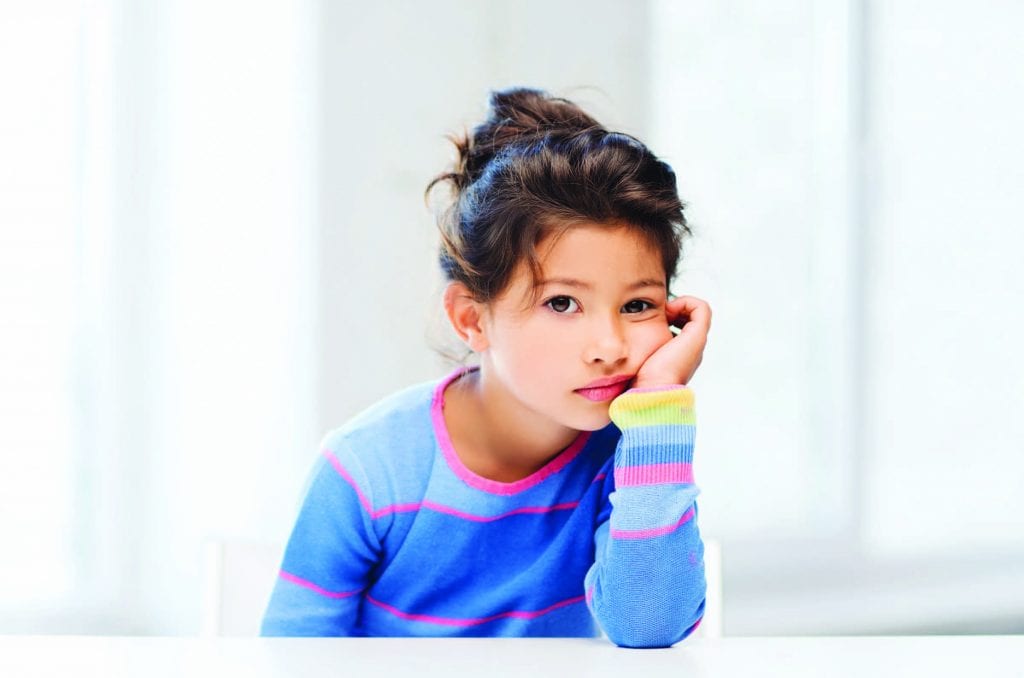April is National Stress Awareness Month. None of us are strangers to tension and anxiety, but it’s easy to forget how those feelings can affect everyone, including children and teens. While stress may look different in adolescents, there are still signs parents can be on watch for, and kids can find healthy ways to manage their mental well-being.
know the signs
“When children are experiencing high levels of stress or anxiety, it impacts their ability to function at home, at school and in extracurricular activities,” says Emily Price, a licensed clinical social worker at SSM Health Cardinal Glennon Children’s Hospital. “It plays a crucial role in their overall well-being.” She notes that kids and teens are impacted by their parents’ stress levels, so it’s important to evaluate what’s happening at home when thinking about their mental health.
signs of stress
- Shifts in mood
- Changes in behavior
- Social isolation
- Neglected responsibilities
- Trouble sleeping
- Altered eating habits
talk about it
Talking with a trusted adult can help adolescents work through and understand what is making them feel stressed. An important part of the conversation should be normalizing those feelings, according to Price. Stress is part of everyday life, and tension or anxiety experienced by children or teens shouldn’t be ignored or trivialized. “Don’t dismiss your child when they tell you that they feel overwhelmed, even if they are young,” she notes. “Affirm their feelings and let them know that it’s OK to feel anxious and scared.”
With school playing such a crucial role in students’ stress levels, Price suggests reframing some conversations around education and expectations. Knowing when schoolwork and extracurriculars are getting to be too much is crucial. “It’s important to understand your children’s limits and not overprogram their schedules,” she says. “There can be a lot of pressure to be perfect, but sometimes, we need to model that good is enough.”
model self care
“With the pandemic, more people are experiencing a higher level of stress than before,” Price says. “It’s important to look at what’s going on with the family overall and how it might be impacting the children. When parents come to me with concerns, I also make sure they see that their own self care is crucial. If you can model good coping mechanisms, it normalizes those behaviors.”
- Sleep. Sleep plays a big role in our physical and emotional well-being, and kids and teens need more than adults. To help ensure everyone catches their requisite 40 winks, limit screen time around bedtime and don’t keep devices in the bedroom.
- Exercise. Staying physically active is an important stress reliever for people of all ages. The U.S. Department of Health recommends at least 60 minutes of activity for children ages 6 to 17. Getting outside also has mental health benefits, so Price recommends taking regular walks.
- Breathe. Deep breathing sends the message to your brain to calm down and relax. Teaching kids belly breathing is a great way to help them reduce tension, and it’s an intervention they can use on their own.
- Read. “There are so many great, age-appropriate books that feature characters coping with stress,” Price says. “Reading is a wonderful opportunity for kids to learn about good coping mechanisms.”
- Reach out. While there can be stigma around seeking mental health care, especially for young people, Price recommends reaching out to your pediatrician or primary health care provider. “Discuss what you are seeing at home,” she says. “They can do an assessment and provide additional recommendations.”
Additional source: American Psychological Association
